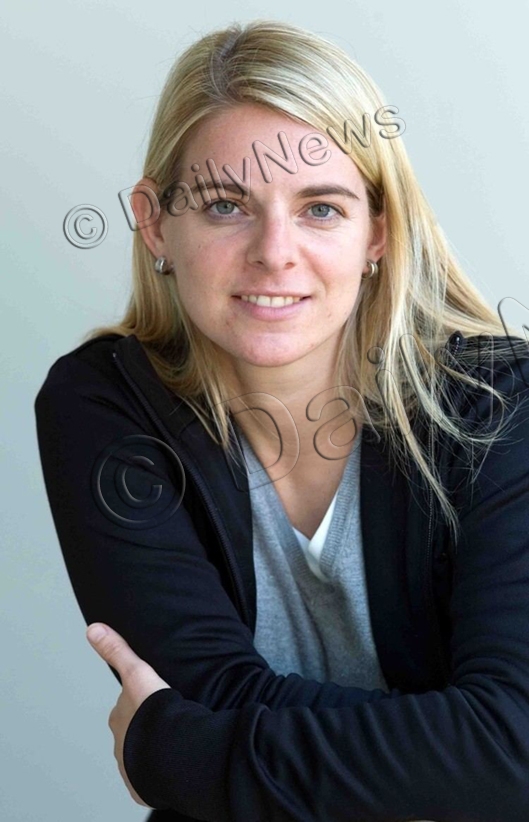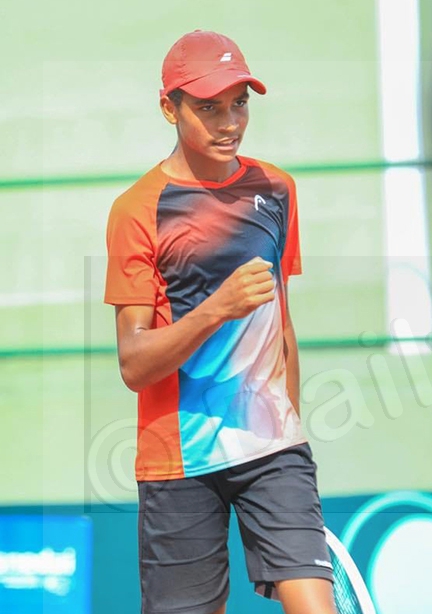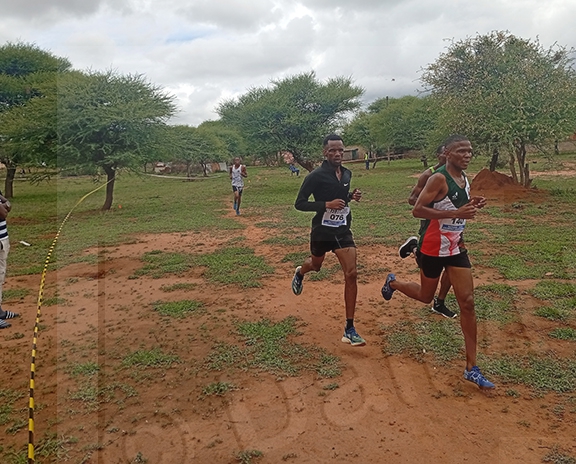Football star who conquered world
18 Apr 2018
In the distant European country of Germany lies a treasure that many Batswana have never heard of. A female footballing gem who was born amongst them and went on to conquer the world of football with a stunning golden goal in the Women’s World Cup final against Sweden in 2003.
The goal went on to become the first ever women’s goal of the year in the history of German football. The goal has become the highlight of her career and launched her into the pinnacle of international football.Nia Tsholofelo Kuenzer, whose parents worked for a development aid organisation in Botswana, was born in Mochudi in January 1980. In an email interview from her German base, Kuenzer explained that she was born in the Kgatleng District.“My parents and my elder brother, Sascha had been living in Gaborone for two years. My father was then working at Tsholetsa House for Friedrich-Ebert-Foundation, and my mother decided not to go to South Africa for my birth but to stay in Botswana,” she explained.Kuenzer highlighted that her mother travelled to Mochudi during her pregnancy for checkups, and she jokingly said that she got used to travelling on gravel roads even before she was born.
The former German World Cup winner with the women’s national football team noted that when she was born at Deborah Retief Memorial Hospital on January 18 1980, she got a Botswana birth certificate and sometime later, a Botswana passport was issued to her. “I keep both items and they are so very dear to me, they make me somehow feel at home in Botswana,” she said.
Consequently, she mentioned that her father’s contract ended and they went back to Germany when she was still a baby, two months old. She said when her parents went to work in Swaziland and in Namibia, she together with her brother went to see them, and she has also travelled to South Africa as an adult several times. As for her Setswana given name, Tsholofelo, she explained that it was given to her by the hospital team at birth.
Kuenzer noted that her mother told the staff at the hospital that she was to be called Nia (Swahili for aim or intention), but the nurses and the midwife told her that she had to be given a proper Tswana name. There was, she added, no discussions about that as the nursing team were the majority. “My mother would have liked Naledi because she knew it means “Star,” but Tsholofelo (Hope) was also nice,” she noted.
She also explained that she has grown up with the name, and many people have asked her since she was a small child what it means and where it comes from. “So the name is part of my personality and yes, it makes me feel a Motswana somehow,” she asserted. However, the former soccer star explained that she has never had the time and opportunity to go back to Botswana, but her parents went back in 2004 and they kept telling her that she must go back to her roots with her own children.
As for memories, she noted that she has no recollection of the country, but said that in her family they always talked a lot about their time in Gaborone. Her brother, she said, went to nursery school and still has photos with his little friends, his dog and the neighbours’ boys he used to play with.
On how she developed interest in football, Kuenzer explained that she has always played football with her brothers since she was a little girl. She also added that her mother was a social worker and an educator and worked in a children’s village.
Kuenzer said together with her brother they grew up with seven foster sisters and brothers. “As far as I have been told, I was rather what is called a Tomboy. No skirts, pink dresses and ribbons in my hair, but rather roller skates, bikes and football dominated my life. When I went to school I used to have a little yellow tennis ball in my trouser pocket, so I could always play a bit. When I was five years old I went to a training lesson with my brothers and I begged my mother to ask the coach if I could play with the boys,” she added.
Kuenzer explained that starting out in football was not easy as she had to get a special permission because girls were not allowed in boys teams and there were no girl’s teams in Germany in 1985. She explained that as she could be quite stubborn if need be, she got the permission and played with the boys at Eintracht Wetzlar until the age of 14.
Consequently, she said she became their team captain for many years, and that playing with the boys had been a good preparation. For two years, she asserted that she played in the town next to her home town with the girls and later the women of VfB Gießen. “When I was 17-years-old I started to play with the team of 1. FFC Frankfurt, with several selections and finally with the national team of Germany,” she said.On her advice to young girls who want to take up football, Kuenzer explained that it was difficult to give general advice to young girls who want to play football since many girls in African countries had duties in the family, they have to help in the house, to look after the younger ones, they are not supposed to travel alone or to go to training lessons. However, she observed that girls get a lot of skills and knowledge, team spirit, health and fitness if they join a football team. She also mentioned that she has assisted in the Galz&Goals programme in Namibia and saw how girls gained self-assurance, power and ambitions. “Whatever those girls become, professional football players, teachers, nurses, lawyers, the skills they have been taught while playing football will help them to be strong, ambitious and clever,” she opined.
She explained that she learned that families finally supported their girls’ ambitions in football because they understood that the girls worked better in school, they developed their personality and that it was useful for whatever they wanted to do.
During her time as a player, she said she continued to study at the university and has a master’s degree in education. She also thinks each and every girl should go to school, find a profession or go to college or university. “One cannot rely on football to earn a living. Many things can happen and I have had four severe knee operations, and one can never know if you may go on playing,” she observed. Kuenzer said it would be wonderful holding coaching clinics in Botswana, but she doubted if she could do it herself. As a mother of two young children, aged three and six and a working mum, she has little time left in her hands.
Kuenzer said if possible, she could help to make connections, network with people who might have time, knowledge and could help in capacity building for young Batswana players. Reminiscing about her football playing days, the German soccer star pointed out that winning the World Cup in 2003 in the United States was unbelievable, and that as it was the first World Cup German women took home, it was special. The cherry on top, Kuenzer explained, was that the victory was especially joyful because the match was ended by a golden goal.
“When I got the ball on my head and I scored the goal, it took us all a few seconds to realise the match was over. I have seen the scenes so many times on TV since, and it was difficult now to exactly remember what I felt then. I see myself buried under my teammates, we were crying, laughing, just couldn’t believe,” she explained. When they returned home from the USA, thousands of supporters waited for the team in Frankfurt and they were told that German TV had postponed the news at 8pm to see the end of the match. Eleven million people, she highlighted, had watched the victory on TV. ENDS
Source : BOPA
Author : Puso Kedidimetse
Location : FRANCISTOWN
Event : FEATURE
Date : 18 Apr 2018







